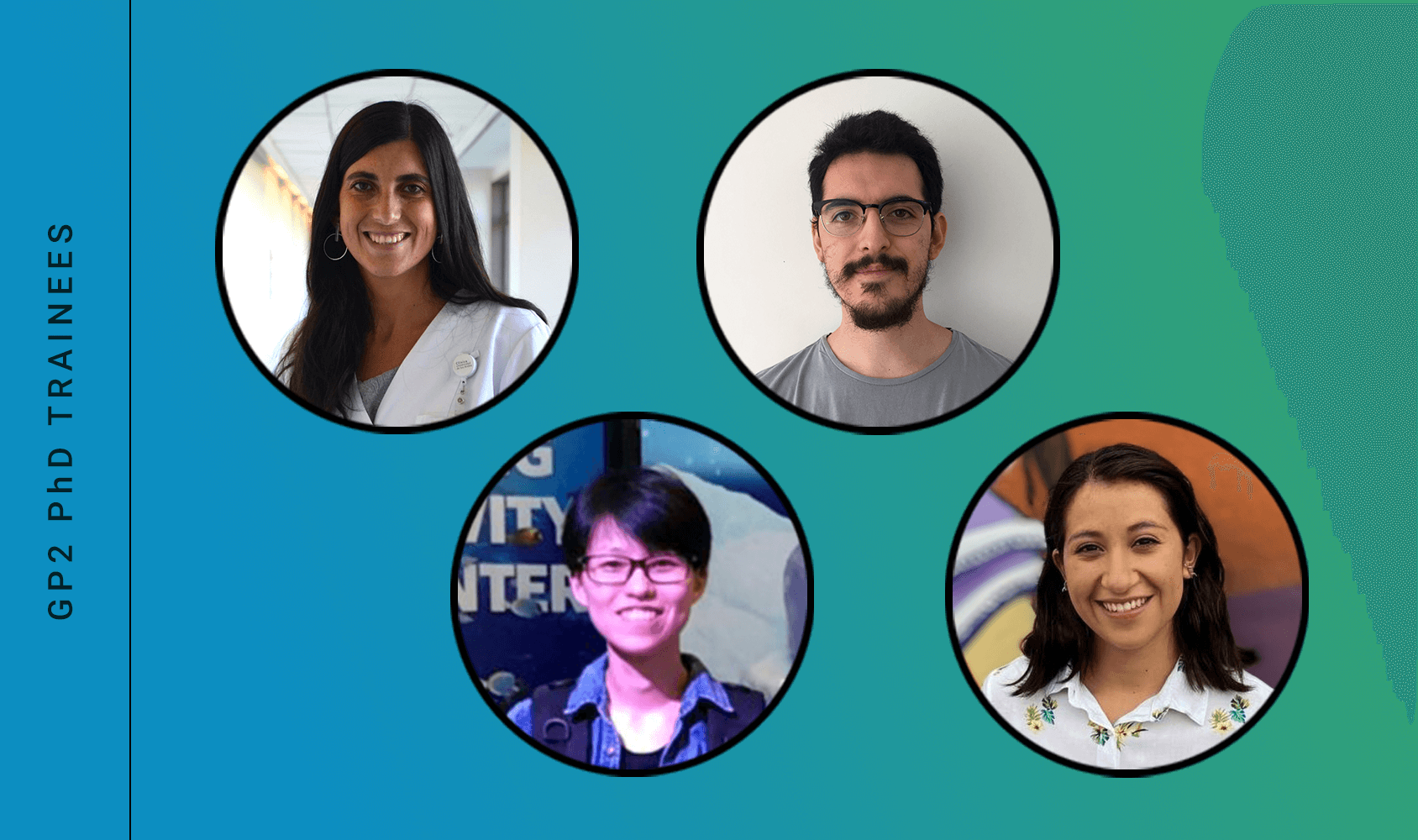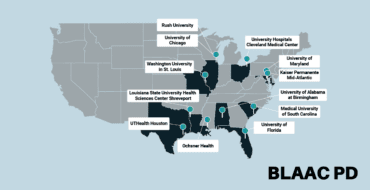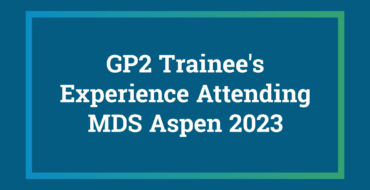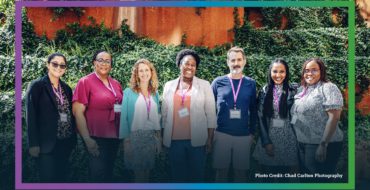New PhD trainees increase Asian and Latin American representation in PD research

Creating a global generation of scientists, and providing opportunities for groups that are traditionally underrepresented in research, are key deliverables for GP2. The Training, Networking and Communication Working Group was established to address these needs. A big focus of our work this year has been setting up PhD and MSc opportunities that will expand our reach and ensure that research capacity is generated where it is needed to further the understanding of the genetic basis of Parkinson’s disease (PD). The GP2 Underrepresented Populations PhD program in Asia and Latin America was a major undertaking.
Read the stories of four successful trainees who have been supported through this program.
Paula Roxana Reyes Pérez
“When I first started studying Parkinson’s disease, I joined online communities of researchers, patients, and care partners, and was amazed by the number of discussions taking place. Despite great advances made in the field, very little research has been done on Latino populations. Luckily this has drawn the attention of initiatives such as LARGE-PD and GP2, who have joined forces to extend our knowledge of Parkinson’s disease in underrepresented populations.
As I read scientific evidence and patient testimonies, I am inspired to better understand genetic and environmental determinants of mental health in Mexican patients with Parkinson’s. I am fortunate to be part of a team formed of experts in genomics, psychology, and neuroimaging, including Dr. Alejandra Medina, Dr. Alejandra Ruiz, Dr. Sarael Alcauter, Dr. Miguel Renteria, and Dr. Ignacio Mata, who guide me everyday, and to work alongside neurologists, patients, and caregivers who are crucial to any research study.
Being a member of the GP2 Trainee Network is a great opportunity on both a professional and personal level. Opportunities like this are scarce in Mexico, but do represent the ongoing efforts in science to achieve representation and better the chances for young Latino scientists (like myself and those who will come in the future) to improve and give back to our community.”
Paula Andrea Saffie Awad
“When Dr. Ignacio Mata told our movement disorders group that the GP2 Trainee Network was seeking applicants for PhD training in underrepresented countries, I knew it was the perfect opportunity. It will allow the development of Parkinson’s disease genetics research in Chile, access to diagnostic techniques, and perhaps even advance the dream to have our own laboratory in the future. Fortunately, I was in contact with Professor Artur Schumacher, a movement disorders neurologist who has led several research projects in Parkinson’s disease in Brazil. After some virtual meetings, we developed a joint project to characterize the genes that contribute to Parkinson’s disease in families from Chile and Southern Brazil. We were able to present our project, and with great joy, received a funding offer.
I see this exciting journey as a bridge that will allow us to get to the other side, and bring knowledge and tools for helping our patients. I want to especially thank Dr. Ignacio Mata, Professor Artur Schumacher, and Professor Pedro Chaná for their support through this process.”
Pin-Jui Kung
“It was my pleasure to recently be appointed as a PhD student within the GP2 Trainee Network. Several years ago, I began learning about neurodegenerative diseases while obtaining my Master’s degree. During my training, I had opportunities to learn about disease progression, study the mechanisms of neurodegeneration, and explore various unanswered scientific questions in the field. This is when my fascination for neuroscience and my interest in neurodegenerative diseases started.
In my PhD training with Professors Ruey-Meei Wu and Shau-Ping Lin, we aim to compare Parkinson’s disease data from different regions, collaborate with other GP2 research teams and study Parkinson’s disease in the Taiwanese population to support development of more effective treatments for patients. It is our honour to be a part of GP2.”
Benjamín Matías Pizarro Galleguillos
“I have always been interested in genetics, bioinformatics, and imaging techniques, and my dream is to combine them to tackle the mysteries of neurodegenerative diseases like Parkinson’s disease. Scientific research in the Latin American country of Chile is not always an easy task; there is a lack of funding and opportunities.
For this reason, being able to collaborate with researchers such as Professor Christine Klein and be a part of GP2 is an opportunity to conduct outstanding research. Supported by the Fundacíon Diagnosis and the GP2 Trainee Network, my PhD project “Genetics of Parkinson’s disease in the Chilean admixed population” supervised by Dr. María Leonor Bustamante will investigate novel effects of rare variants in patients with monogenic Parkinson’s using next generation sequencing and bioinformatics. Subsequently, our goal is to conduct functional studies to unravel the effect of these variants on the pathophysiology of Parkinson’s disease.”
To get in touch or follow the work of the trainees, find their contact information and social media handles here.
If you are interested in Parkinson’s disease genetics research, check out GP2’s upcoming opportunities.
Meet our second round of trainees who are from Ghana and Djibouti.



